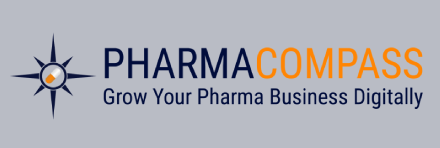
Only Regulatory Products (API/FDF), Drugs in Developments and News are Updated on this Virtual Booth
Update your Virtual Booth on PharmaCompass, ask us ![]()
About
International Sweetene...International Sweetener Colloquium
Not Confirmed
Not Confirmed
22-25 February, 2026
Not Confirmed
Not Confirmed
23-25 February, 2026
Clinical Trial Supply ...Clinical Trial Supply Europe
Not Confirmed
Not Confirmed
24-25 February, 2026
List your booth number for exhibitions, ask us
CONTACT DETAILS




Upload your Marketing & Sales content on your company Virtual Booth, click HERE.
Events
Webinars & Exhibitions

International Sweetene...International Sweetener Colloquium
Industry Trade Show
Not Confirmed
22-25 February, 2026
Industry Trade Show
Not Confirmed
23-25 February, 2026
Clinical Trial Supply ...Clinical Trial Supply Europe
Industry Trade Show
Not Confirmed
24-25 February, 2026
Digital content


27 May 2025
// FIERCE BIOTECH
https://www.fiercebiotech.com/biotech/5-people-charged-600k-insider-trading-scheme-tied-novartis-chinook-acquisition

23 Aug 2024
// BIOSPACE
https://www.biospace.com/business/novartis-versant-launch-rna-kidney-medicines-focused-borealis

11 Aug 2023
// GLOBENEWSWIRE
https://www.globenewswire.com/news-release/2023/08/11/2723695/0/en/Novartis-Completes-Acquisition-of-Chinook-Therapeutics.html

28 Jul 2023
// GLOBENEWSWIRE
https://www.globenewswire.com/news-release/2023/07/28/2713095/35377/en/Chinook-Therapeutics-Announces-First-Patient-Enrolled-in-Pivotal-Phase-3-BEYOND-Study-of-Zigakibart-BION-1301-for-Patients-with-IgA-Nephropathy.html

17 Jun 2023
// GLOBENEWSWIRE
https://www.globenewswire.com/news-release/2023/06/17/2689976/35377/en/Chinook-Therapeutics-Presents-Data-from-CHK-336-Phase-1-Trial-in-Healthy-Volunteers-and-New-Insights-into-the-Role-of-Failed-Repair-in-Chronic-Kidney-Disease-at-the-60th-European-R.html

12 Jun 2023
// GLOBENEWSWIRE
https://www.globenewswire.com/news-release/2023/06/12/2686669/35377/en/Chinook-Therapeutics-to-Present-Updated-Data-from-Zigakibart-BION-1301-Phase-1-2-Trial-in-Patients-with-IgA-Nephropathy-IgAN-at-the-60th-European-Renal-Association-ERA-Congress.html
ABOUT THIS PAGE

